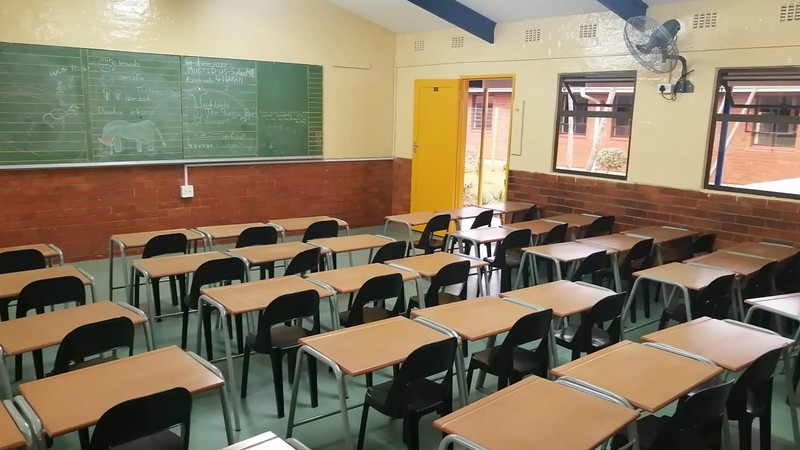The Department of Basic Education has revealed that high-level engagements are taking place to address the crippling financial problems that have brought the KwaZulu-Natal Department of Education (DoE) to the brink of financial collapse.
The office of the Minister of Basic Education, Siviwe Gwarube, stated that there has been ongoing communication with the province, and discussions are underway to find workable solutions amid serious challenges. The minister’s office addressed the issue following speculation and calls for the national government to intervene and stabilise the provincial department. The DA in the province and teacher unions have claimed that the department has collapsed financially.
Recently, the DA in KwaZulu-Natal warned that the provincial DoE is spiralling into financial collapse, prompting urgent calls for intervention and possible administration under Section 18 of the Public Finance Management Act (PFMA).
When asked whether the minister intended to intervene, Lukhanyo Vangqa, the minister’s spokesperson, said any decision to formally intervene in a province must be taken by the National Executive in accordance with the Constitution. No decision for the national government to undertake a formal intervention in respect of the KZN Provincial Government has been made by the National Executive to date.
He, however, said high-level engagements are ongoing to find a workable solution. “Whatever decision the Minister of Basic Education makes regarding KZN must and will be in the best interests of all learners and educators in the province. The minister is still engaging with the province and will continue to consult with the Minister of Finance where necessary and appropriate in this regard.”
“The minister wishes to emphasise that the basic education sector as a whole is under serious financial strain. Last year, the minister mentioned that without additional funding, three provincial education departments are at risk of being unable to fund their budgets by 2026/2027, and those risks are now starting to materialise.”
“To resolve the financial constraints faced by KZN and other provinces, the minister believes that the government must adequately fund basic education as a top priority. Provinces need to do more to ensure that their existing education budgets are managed and spent effectively and efficiently,” he said.
Sakhile Mngadi, the DA spokesperson on education in KZN, stated that the DoE’s finances have been crippled by ballooning cost of employees (CoE) expenditure, which consumed a staggering 92% of its R62.99 billion budget for 2024/25.
He noted that despite repeated warnings, the wage bill continues to rise unsustainably, leaving only 8% of the total budget for critical service delivery items, including infrastructure, learner support materials, and school meals.
“The DA views the situation as a full-blown constitutional and humanitarian crisis. The DoE has overcommitted its financial obligations, carrying over billions of rand in accruals from the 2024/25 financial year without lawful budgetary provision. These liabilities are now deferred to the 2025/26 budget, which is yet to be debated or approved by the KZN Legislature.”
“KZN’s DoE has made financial promises it cannot legally fulfil. This is a flagrant violation of the PFMA. To make matters worse, the department has continued to mislead both the portfolio committee and the public.
“Repeated reassurances that service providers and personnel would be paid on time have proved to be false. Whether due to incompetence or deliberate deception, this is unacceptable,” he concluded.
The DoE’s spokesperson, Muzi Mahlambi, confirmed the engagements and said these have been initiated by MEC Sipho Hlomuka.
THE MERCURY
